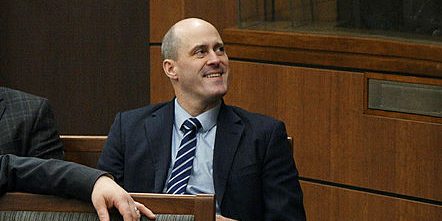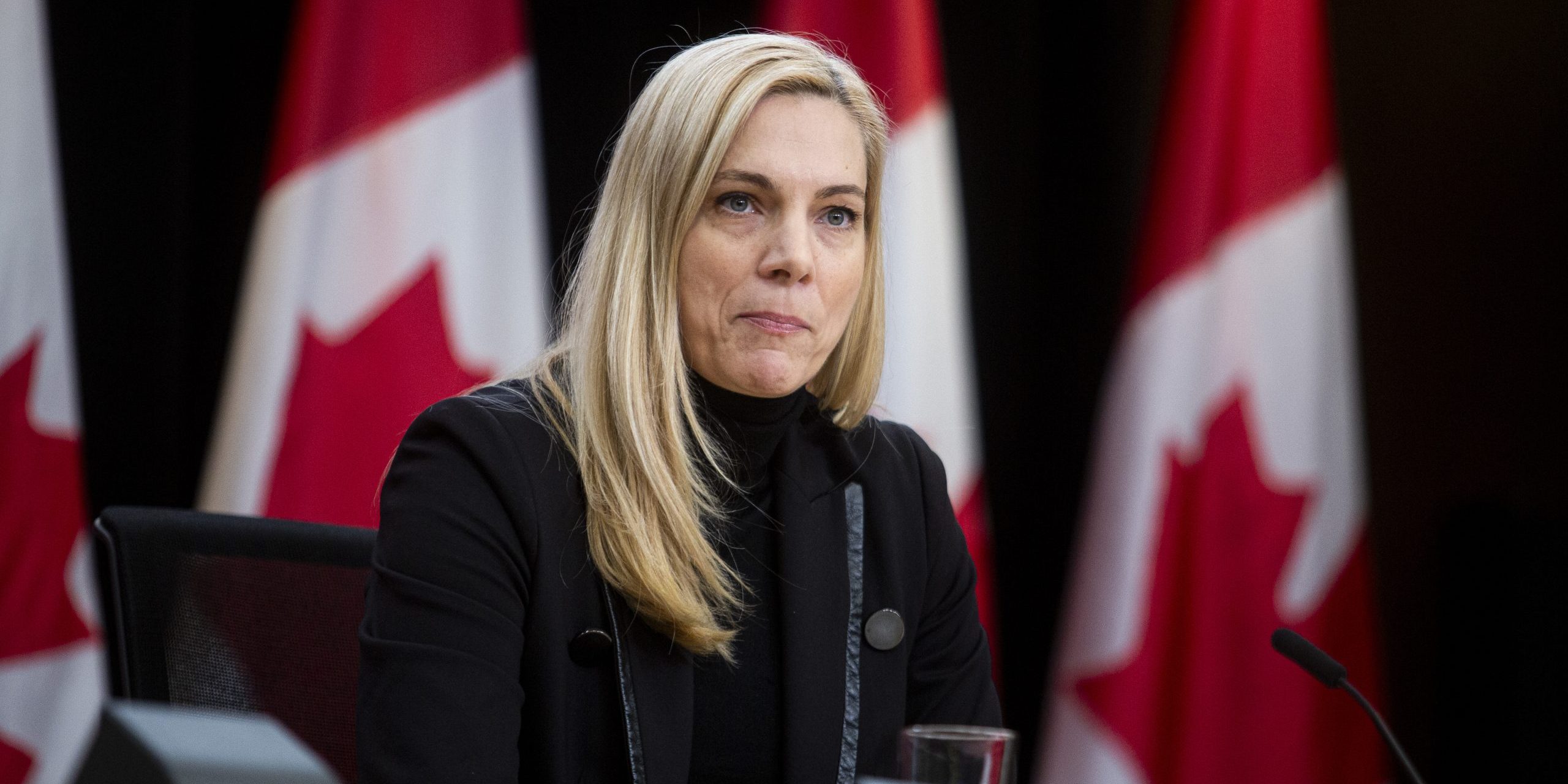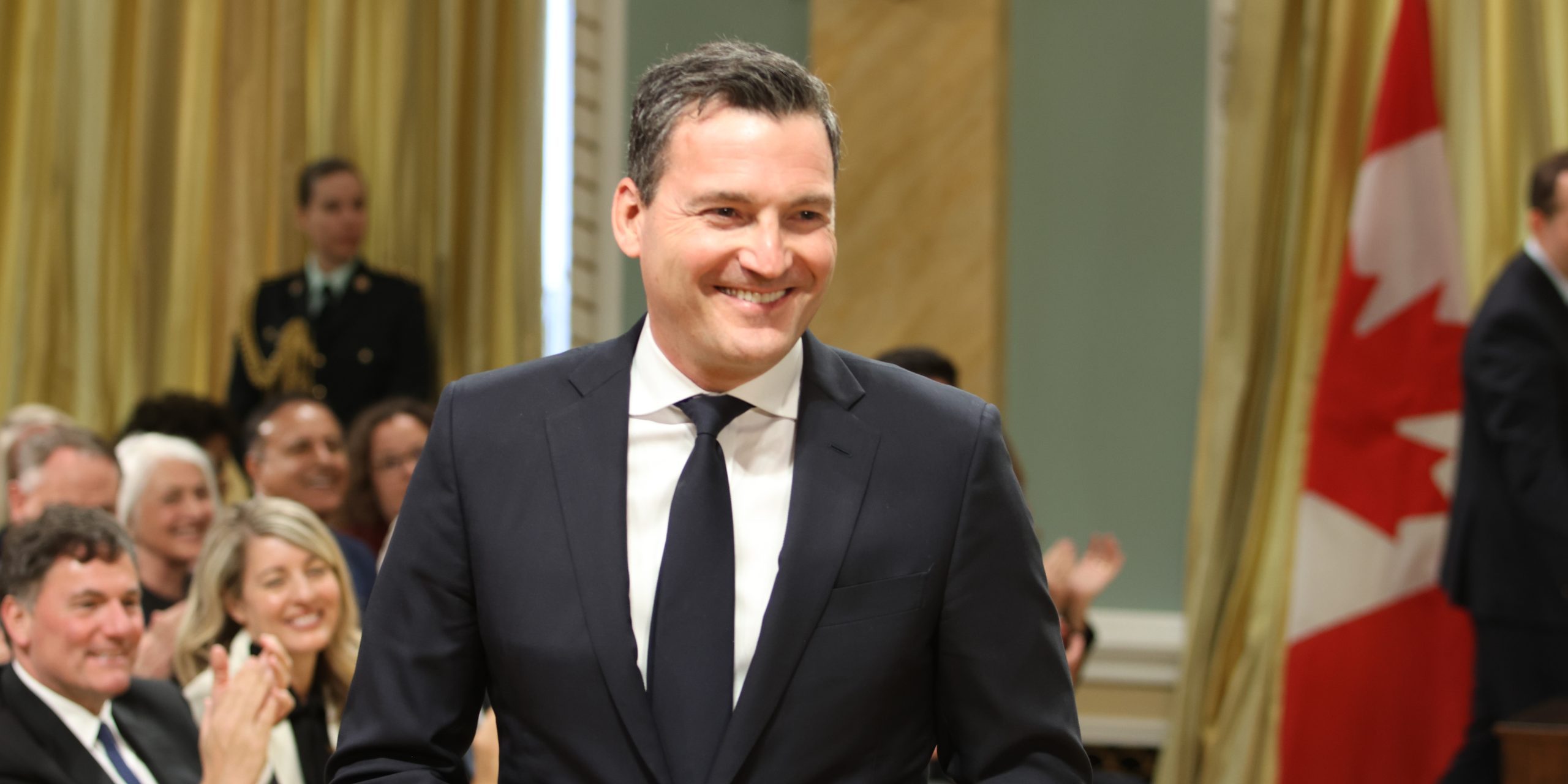

Heritage minister says CBC should cut ads from news programming in new mandate proposal for public broadcaster
Broadcast | | February 20, 2025
Canadian Heritage Minister Pascale St-Onge has released a long-awaited set of proposed changes for CBC/Radio-Canada’s mandate under the Broadcasting Act including removing ads from its news programming, but private broadcasters have argued that it is not enough to keep the Crown corporation from stepping on their toes.
The minister released her proposed amendments on Thursday, stemming from the work of an advisory committee she established last year to discuss the future of the public broadcaster. Other proposed changes include an overhaul of the CBC’s funding, adjustments to its governance structure, and increased citizen participation.
“I am bringing the following proposal forward so that all those who support CBC/Radio-Canada, and we are in the majority, can unite their efforts and follow this roadmap to fruition,” St-Onge (Brome-Missisquoi, Que.) told a media briefing. She pointed to a report from the Centre for Media, Technology and Democracy which found in 2024 that 78 per cent of Canadians would like to see the CBC/Radio-Canada continue operating if it addresses its major criticisms including perceptions of bias and speaking to audiences’ interests.
The minister proposes switching the Crown corporation’s funding mechanism from parliamentary appropriations, decided on through the yearly federal budget, to statutory appropriations based on an annual per capita amount.
“The existence of our public broadcaster depends on a single line in the budget,” explained St-Onge. “I’m proposing that we remove the decision-making around funding from the political cycle – whether it’s elections or the budget.”
She emphasized the need for “predictable, viable and stable funding” for the CBC, arguing that its current funding mechanism makes it difficult for the broadcaster to plan ahead. She also highlighted how funding for the CBC has become an increasingly partisan issue over the years, calling for it to be “taken out of politics.”
“CBC does not belong to the Liberals, it does not belong to the Conservatives, and it does not belong to any other political parties. It belongs to the Canadian people,” said St-Onge.
“Given that multi-year funding is designed to cross over electoral cycles, it can also further protect public service broadcasters from any real or perceived political influence by ensuring that they depend less on the ongoing goodwill of the government in power,” the minister’s proposal reads.
St-Onge did not provide a specific amount that the statutory per capita funding should be set to, explaining that it will be up to the government to decide, but she called for it to be closer to the average public broadcaster funding level for G7 countries at around $62 per capita. Currently, according to Canadian Heritage, the government provides approximately $1.38 billion to CBC/Radio-Canada, amounting to about $33.66 per capita.
“Per capita funding reflects the idea that access to public service media is a public good,” the minister’s proposal reads. “It becomes intrinsically linked to the concept that all citizens have an equal interest in maintaining a robust and independent media sector. Citizens, as taxpayers, are essentially the stakeholders and owners of the national public broadcaster.”
St-Onge added that “the search for advertising revenues is incompatible with the information mission of CBC/Radio-Canada,” arguing that the public broadcaster’s reliance on ad dollars risks compromising its public service mandate and could encourage it to favour revenue-generating content. As such, the minister proposes prohibiting the CBC from advertising on all news, information, and public affairs programming on all of its services.
“This would also free up advertisement dollars for the private sector,” she said.
Private broadcasters want CBC out of ad market entirely
While the proposed reduction in the CBC’s reliance on ad dollars is “a good start,” Canadian Association of Broadcasters (CAB) president Kevin Desjardins said it is not enough.
“We think that any increase in funding of the CBC should be tied to them getting out of the advertising space altogether,” he said in an interview with The Wire Report.
“Part of the concern about [the CBC] just coming out of news and public affairs programming is that then it could create a motivation for the CBC to continue to get involved in programming of a popular nature that would attract advertising to it,” he explained.
“Ultimately, what we want is for the CBC to be a public service broadcaster that is focused on its mandate and not the market.”
Desjardins highlighted that when private broadcasters are focused on market-based initiatives, they end up not only competing for ad dollars, but also for viewers, talent, and programming rights. He called for the CBC to be made to operate as a “complementary service” in the broadcasting ecosystem, “not one that is competing with the private broadcasters.”
The issue of competition goes beyond just pulling out of the advertising market, although that would be a “critical step,” according to Desjardins. He emphasized the need for measures that address the “extent” to which CBC/Radio-Canada “skews the market in certain ways.”
Desjardins called on the government to stop “spending Canadian taxpayer dollars” advertising on “platforms that basically just suck that money out of the Canadian economy,” continuing his push for the federal government to change the tax deductibility on foreign advertising. He argues that it takes too much ad revenue out of Canada.
“A real, practical incentive that could be put in place is to extend the journalism labour tax credit to broadcasters,” he also suggested. Currently, the tax credit is only available to print publications.
“Broadcasters are just as important a provider of news as print and online services, but they don’t have access, at present, to the labour tax credit to help keep journalists in newsrooms,” said Desjardins. “That would be a simple incentive to help support a really critical part of the Canadian media sector.”
CEO appointments, governance structure among other changes
St-Onge further proposed amending the Broadcasting Act so that the president and CEO of CBC/Radio-Canada would no longer be appointed by the Governor in Council, but instead be appointed for a five-year term by the CBC/Radio-Canada board of directors. The board of directors would also have the ability to extend the CEO’s term, limited at 10 years.
“The appointment of the president and CEO by the government can negatively influence citizens’ perceptions about CBC/Radio-Canada’s independence from the government,” states the minister’s proposal, highlighting the need to address a lack of trust in public media, a phenomenon that she noted has been happening in many countries.
While the members of the board would still be appointed by the government, St-Onge proposes adding to the act an obligation that would require the government to consult with an independent advisory board whenever it makes decisions related to such appointments.
The minister also proposes adding two new seats to the board, which would then be made up of 13 voting members plus the non-voting CEO.
“This change would allow aiming towards an ideal of representing each Canadian province and territory, thereby reflecting a recommendation by the Aird Commission in 1929, which led to the creation of CBC/Radio-Canada, under which the Corporation’s management should try to match Canada’s regional diversity.”
That recommendation for the board to reflect the diversity of Canada would also be added to the act, St-Onge proposes, along with a requirement that two of the members have “financial skills, which would be ensured through a professional financial designation requirement,” the document states.
Increased public consultation
“Some people feel that the public broadcaster is too opaque and far from their reality and their needs,” said St-Onge.
To address this, she proposes requiring the Crown corporation to hold public consultations on issues around its priorities and corporate strategies, along with the obligation for it to indicate in its strategic plans how those consultations influence their decision-making and operations.
She emphasizes in the proposal document the need for CBC/Radio-Canada to “reflect the lived experiences, languages and needs of Canadian citizens.”
St-Onge takes the public accountability goal a step further and proposes requiring the CBC to develop a strategy with Indigenous communities to consider their needs through its work.
Advocacy group supports proposed changes
“This is the most comprehensive and audacious plan to revitalize the CBC/Radio Canada that we have seen in decades,” said Marla Boltman, executive director of advocacy group Friends of Canadian Media.
She applauded the minister for “doing the hard work of putting CBC/Radio Canada on the path to providing Canadians with the services they need and want for generations to come.”
“Now more than ever, Canadians are closing ranks around our cherished public institutions and expect our politicians to do the same,” added Boltman. “It’s time for our political leaders to send a message that they believe in CBC/Radio Canada and the essential role it plays in Canadian life.”



